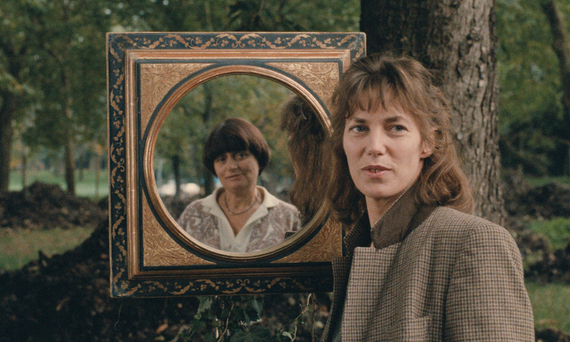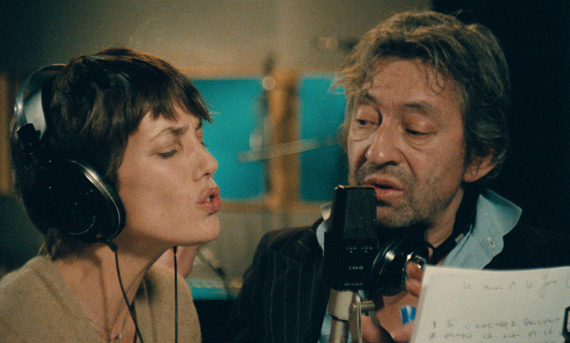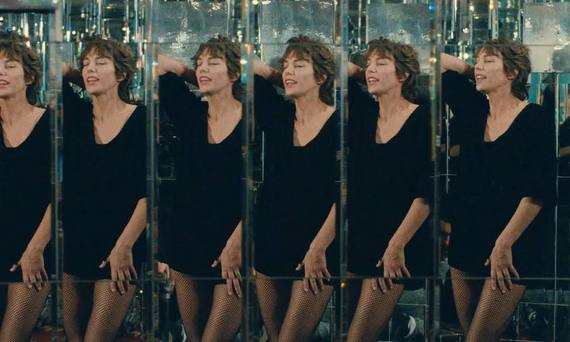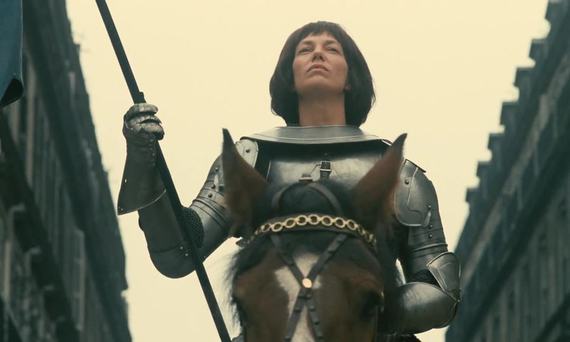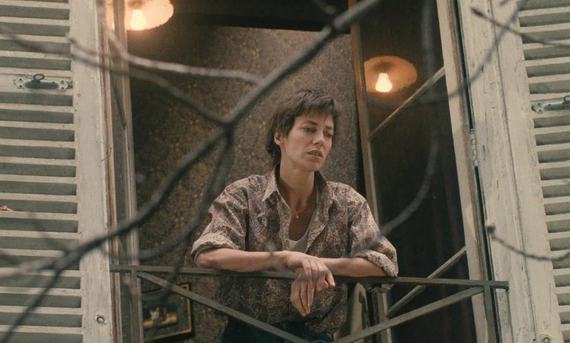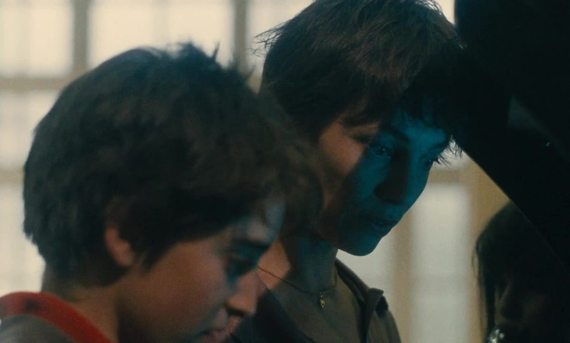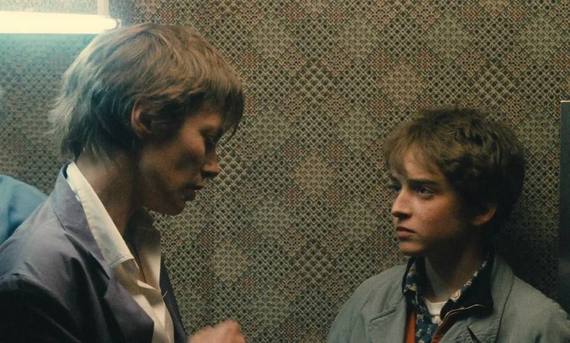Mirror, Mirror: Birkin by Varda by Birkin
JANE B. PAR AGNES V. and KUNG-FU MASTER let their protagonists slip through the films into their own self-determined futures.
By Adam Cook
The two films Jane B. par Agnès V. and Kung-fu Master, both released in France in 1988, are, its director argues, completely separate films--and yet it is difficult to pull them apart and to take either in without relating it to the other. One is a documentary with staged vignettes, the other a more conventional (hardly the right word) drama, but both organically emerge from the creative meeting point of Jane Birkin and Agnès Varda who found in the former a unique spirit that compelled her to point her camera at her in two straight films. Birkin, meanwhile, found in Varda a confidant behind the camera for whom she could be completely herself, at ease and free.
By the late eighties, Birkin had already had three well-documented romances, first with composer John Barry, then famously with Serge Gainsbourg, for whom she would figure as a muse, and finally with filmmaker Jacques Doillon. Each of these relationships led to the birth of a daughter. After a brief, somewhat scandalous appearance in Antonioni's Blow-Up (1966), Birkin went on to an offbeat career as an actress and recording artist. When Varda and Birkin set out to make Jane B. par Agnès V., the director had recently turned sixty, and the actress forty, and both were raising children. Birkin's identity as Gainsbourg's muse had long-expired, and her identity as an independent mother was finally taking over. One can sense Varda's curiosity, admiration and acute understanding of Birkin as she poses questions from behind the camera, and sets up different scenarios in which to place her.
Immediately, Birkin registers in the frame as someone and something mysterious and special, both an exhibitionist and a modest soul, playfully elusive in her self-description. We are introduced to her under a moving spotlight as she crosses a street. She's happy to be in the limelight, pleased to be paid attention to, and yet somehow never vainglorious. There's the slightest unease to her presence. Early on, she tells Varda that she never likes to look into the camera lens, that it embarrasses her. Varda insists that she look, and thus begins an interactive, investigative and deconstructive "self" portrait. Varda manages to always bounce back between how she sees Birkin, and how she sees herself. The film is the precise halfway mark between the two. Note that the title contains the word "for," not "by," this is not Varda defining Birkin, but Birkin presenting herself to Varda for interpretation.
Birkin speaks of her typical British upbringing, a childhood in which she was a "normal girl but more photographed." She spills out her purse to see if we can find evidence of who she is, we visit her family home, Varda recomposes paintings in live action with Birkin as their subject, and several dramatic sketches unfold with Birkin as their star, placed in roles she'd like to play. In one sequence, the characteristically generous Varda asks Birkin who she'd like to play opposite in a scene, and while she doesn't provide her with the top choice of Marlon Brando ("too expensive"), she puts her in a picnic with the great Jean-Pierre Léaud. Varda uses formal tools, both of documentary and fiction, to articulate this singular woman. Eventually, this self-described wandering film begins to dream of another movie altogether, one based on a short story by Birkin about a middle-aged single mother who falls in love with a boy. Complaining about costumes and formalities of screen acting, Birkin expresses a desire to appear in a film as she normally is, with jeans, an old sweater and messy hair. So, Varda decides to make it.
Kung-fu Master is that film, a moving and sensitive portrayal of forbidden love distinctly in a minor key that makes its taboo subject surprisingly nonchalant. Hardly a work of provocation, Varda casts her son Mathieu Demy as the teenage object of affection, and Charlotte Gainsbourg plays, naturally, her mother's daughter. Birkin's protagonist, Mary-Jane, is a divorcee with primary custody of her children. She's a loving mom, noticeably left hardened and lonely until Julien (Demy) catches her eye. After a fallen romance, perhaps the innocence of the boy seems appealing and safe in its naiveté, free from the pitfalls and complications of adulthood. Moreover, Julien represents for Mary-Jane a chance to rewind herself to a time when she was romantic and wide-eyed. It never feels like a love story, but a portrayal of a mutual crush. The low-stakes prevent the film from embracing the melodrama one might assume it would, and it hardly tackles the ethical question at its core with more than a shrug. Instead, Varda and Birkin create a quiet look at a female middle-aged crisis, and do so without judgment.
Its tongue-in-cheek title refers to an arcade game of the same name that Julien is particularly adept at playing. It's while playing the game that Mary-Jane first starts to have feelings for him, and so when she cleverly sets up a "date" with him, she surprises him by bringing him to a new arcade where they take turns playing Kung-Fu Master. A clumsy joystick combatant, Mary-Ellen admires Julien's proficiency as he does away with foes to save a damsel in distress that may as well be her, desiring the focus and single-minded determination of his plight to get the girl. Things start to get heated. Subsequent meetings lead to declarations of feelings, kisses, and a rendezvous at a hotel bar that almost leads up to a room upstairs. Mary-Ellen tries to resist her instincts on moral grounds but ultimately cannot deny herself the solace from the hurtful reality he offers.
It is not, however, a love meant to last, and it never feels like the two reach a level of intimacy that would suggest otherwise. Still, their on-screen interactions possess a sweetness, and Birkin and Demy play off one another tenderly, equally guileless. Varda imbues every frame with warmth. Kung-fu Master's abrupt and painful ending feels inevitable, and leaves Mary-Jane close to where she started. But this is not a film about a martyr-like single mother trapped by life, but one about a woman whose yearning is still youthful, burning with love and light. The film never fully defines her, just as with Birkin in Jane B. par Agnès V., she is a paradoxically evasive and ever-present figure that cannot be pinned down. Varda referred to the portrait of Birkin as an "imaginary biopic," and indeed it is not a film that aims to tell the famous figure's life story nor to use her past to discover who she is, but looks to her present moment--both Jane B. and Kung-fu Master let their protagonists slip through the films into their own self-determined futures that will continually reshape them.
